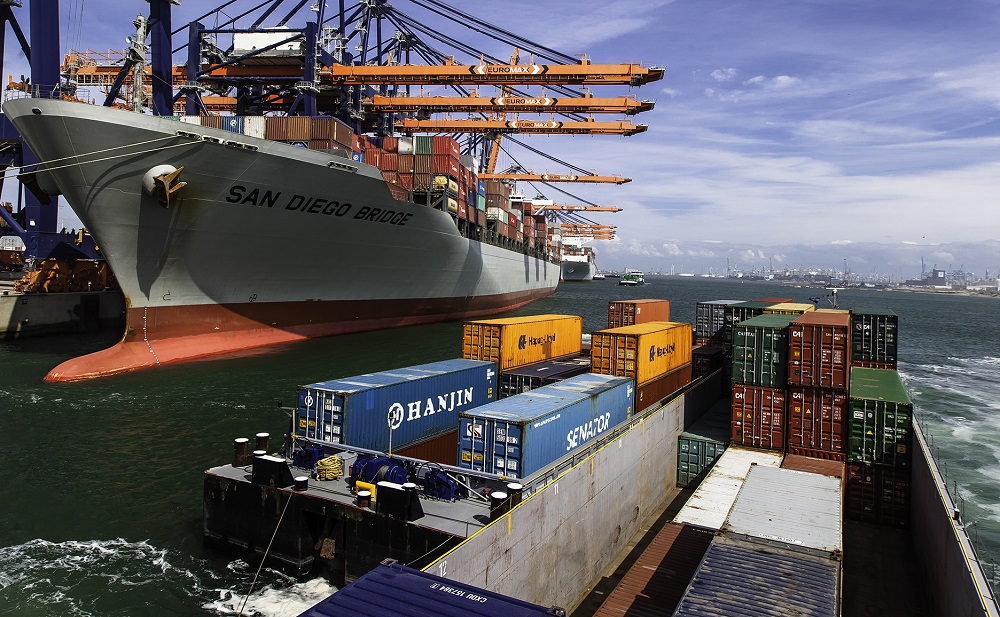Dutch Economy Feels The Pinch As US Trade War Intensifies

Table of Contents
Agricultural Sector Under Pressure
The Dutch agricultural sector, a powerhouse of global exports, is facing significant challenges due to increased tariffs on agricultural products imposed as part of the US trade war. This sector, renowned for its efficiency and innovation, is particularly vulnerable to trade disruptions.
Impact on Dairy and Horticultural Exports
The impact on Dutch dairy exports to the US has been substantial. Increased tariffs have led to:
- Reduced demand: US importers are less willing to purchase Dutch dairy products at higher prices, leading to a decrease in overall sales.
- Price drops: Dutch farmers are forced to accept lower prices to remain competitive, impacting their profitability and sustainability.
- Increased competition: Other dairy exporting countries, not subject to the same tariffs, are gaining market share in the US.
- Need for diversification of export markets: Dutch dairy farmers are actively seeking new markets in Asia, Europe, and elsewhere to offset the loss of US business. This requires investment in logistics, marketing, and adapting products to suit different consumer preferences.
The Dutch horticultural industry, a global leader in flowers, vegetables, and other horticultural products, also faces significant headwinds. Tariffs have squeezed profit margins and complicated supply chains, requiring a strategic re-evaluation of market diversification.
Government Support and Mitigation Strategies
The Dutch government is aware of the severity of the situation and is implementing various support measures to help farmers adapt and mitigate the negative effects of the US trade war on the Dutch economy. These strategies include:
- Subsidies: Financial support to farmers to help cover losses and invest in new technologies.
- Export promotion programs: Initiatives to help farmers access and penetrate new export markets.
- Investment in research and development: Funding research into new, more efficient farming techniques and resilient crop varieties.
- Trade negotiations with alternative partners: Actively seeking trade agreements with countries outside the US to diversify export markets and reduce reliance on a single trading partner.
Manufacturing and Industrial Sectors Affected
The Dutch manufacturing and industrial sectors, integral to the Dutch economy, are experiencing disruptions due to the trade tensions stemming from the US trade war. Their reliance on global supply chains makes them particularly vulnerable to tariff increases and trade uncertainties.
Disruptions to Supply Chains
Tariffs on imported raw materials are increasing production costs for Dutch manufacturers. This leads to:
- Increased production costs: Higher prices for raw materials reduce profit margins and competitiveness.
- Delays in production: Disruptions to supply chains due to trade restrictions can lead to production delays and missed deadlines.
- Uncertainty about future supply chains: The unpredictable nature of the trade war makes it difficult for businesses to plan long-term investments and strategies.
- Impact on competitiveness: Higher costs and disruptions make Dutch manufacturers less competitive in the global market.
Impact on High-Tech and Semiconductor Industries
The Netherlands boasts a strong high-tech sector, particularly in semiconductors. This sector's reliance on US technology makes it particularly vulnerable to the US trade war. The consequences include:
- Dependence on US components: Many Dutch high-tech companies rely on US-made components, making them susceptible to shortages and price increases.
- Potential for shortages: Trade restrictions could lead to shortages of critical components, disrupting production and impacting innovation.
- Impact on innovation and investment: Uncertainty about the future of trade relations can discourage investment in research and development, hindering innovation and growth in this critical sector.
Consequences for Dutch Consumers
The US trade war isn't just affecting businesses; rising prices due to tariffs are impacting Dutch consumers. This translates to a tangible decrease in purchasing power and impacts broader economic indicators.
Increased Prices for Imported Goods
Tariffs on imported goods lead to:
- Increased cost of living: Higher prices for everyday goods reduce the disposable income of Dutch consumers.
- Reduced purchasing power: Consumers have less money to spend on other goods and services, impacting overall economic activity.
- Impact on consumer confidence: Rising prices and economic uncertainty can lead to decreased consumer confidence, further dampening economic growth.
Potential for Economic Slowdown
The cumulative effects of the US trade war could trigger a broader economic slowdown in the Netherlands:
- Decreased investment: Uncertainty about future trade relations can discourage businesses from investing in expansion and new projects.
- Reduced consumer spending: Higher prices and decreased consumer confidence lead to reduced spending.
- Impact on employment: Economic slowdown can lead to job losses and increased unemployment.
Conclusion
The intensifying US trade war presents significant challenges for the Dutch economy, impacting the agricultural, manufacturing, and high-tech sectors. The ripple effects are felt by businesses and consumers alike, leading to increased costs and uncertainty. The Dutch government must actively implement supportive policies and encourage diversification to mitigate these negative impacts. Understanding the full extent of this Dutch economy crisis resulting from the US trade war is crucial for developing effective strategies to navigate these turbulent times. Staying informed about the evolving situation and adapting business strategies is essential for navigating the complexities of the ongoing US trade war and its impact on the Dutch economy.

Featured Posts
-
 Amundi Msci All Country World Ucits Etf Usd Acc Nav Analysis And Implications
May 25, 2025
Amundi Msci All Country World Ucits Etf Usd Acc Nav Analysis And Implications
May 25, 2025 -
 Desvendando O Ferrari 296 Speciale O Superesportivo Hibrido
May 25, 2025
Desvendando O Ferrari 296 Speciale O Superesportivo Hibrido
May 25, 2025 -
 Hells Angels History Organization And Societal Impact
May 25, 2025
Hells Angels History Organization And Societal Impact
May 25, 2025 -
 Podrosshie Deti Naomi Kempbell I Noviy Roman Supermodeli Foto I Podrobnosti
May 25, 2025
Podrosshie Deti Naomi Kempbell I Noviy Roman Supermodeli Foto I Podrobnosti
May 25, 2025 -
 250 000 London Theft Prompts Jenson Button To Stay Away From Uk
May 25, 2025
250 000 London Theft Prompts Jenson Button To Stay Away From Uk
May 25, 2025
